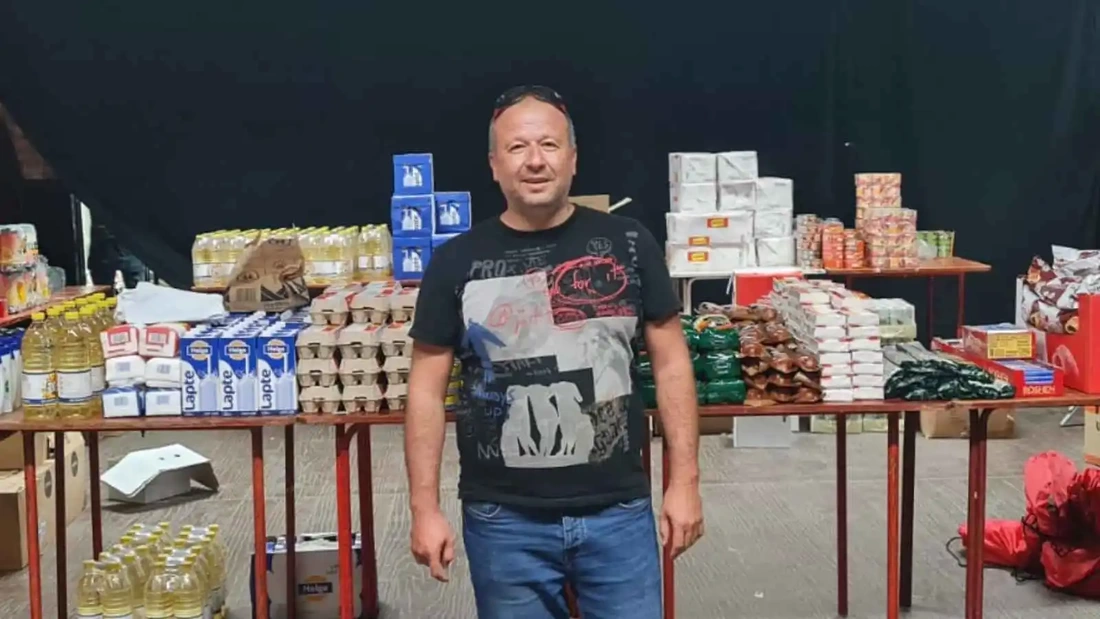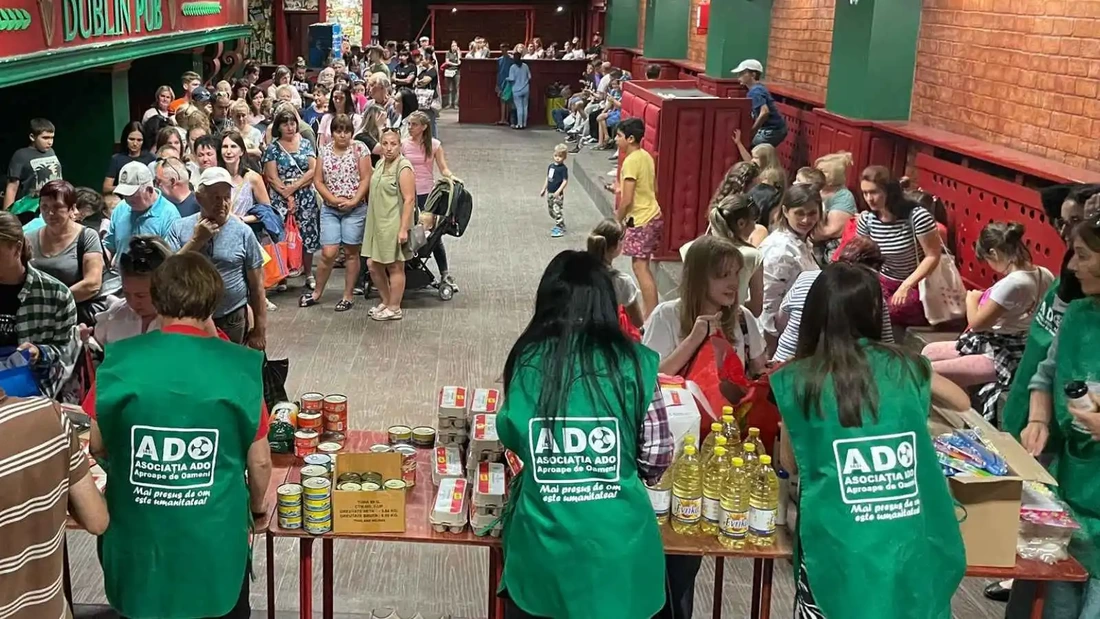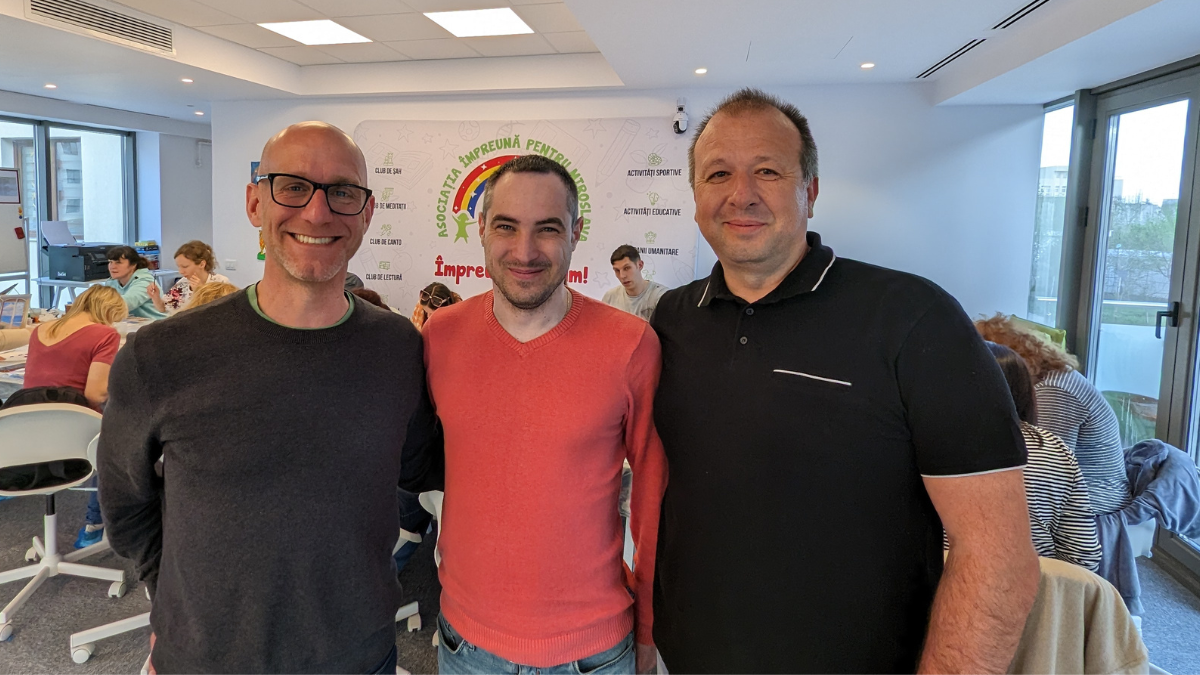Meet Marius Aonicesei: Director of Asociatia Aproape De Oameni (ADO), our local partner in Romania.12/7/2023
Whilst this is a newer programme, set up in response to the Russian invasion of Ukraine, Children on the Edge has a long history working both in Romania, and with Marius Aonicesei who is the Director of ADO. We spoke to Marius to find out more about his connection with Children on the Edge, his work with ADO, and the challenges facing Ukrainian refugees in Romania, 15 months after the war first started. Tell us a little bit about yourself? I am a trained social worker, with over 23 years of experience working with children and people 'on the edge'. I love my job and I started my career working with Children on the Edge in 2001. Today, my work involves me in projects from many different fields, like child protection, children/adults with special needs, elderly and trauma victims. And of course, more recently, refugees. Tell us about ADO and the work that you do in Romania? ADO is a local organisation that I created with other social workers to respond to different problems in the Iasi area. Over time, and built upon our collective experience, we have developed free training and workshops for specialists, social workers, psychologists and educators. The training helps them start a career and make the transition from school knowledge to practice. In the last few years we have developed a programme for people in need and those affected by crises. We developed a programme for poor rural areas during the COVID pandemic that supported over 300 families around Iasi. Then when the war in Ukraine started, we ended up on the front line of the refugee response, offering support at the Siret border, at local refugee camps and sending volunteers to distribute help inside Ukraine. We worked in close cooperation with Siret City Hall, Siret Social Services department and, with the financial support from Children on the Edge, we managed to develop services for refugees that adapted to their ever changing needs. ADO and Children on the Edge have a long history of working together, could you tell us how you first started working with Children on the Edge? Whilst ADO is only 10 years old my personal connection to Children on the Edge goes back many years. I started my social work career with Children on the Edge in Romania in 2001 and co-ordinated their programmes for almost 6 years. At that time, Children on the Edge was one of the most relevant and important NGOs working in Romania and was developing some of the most important social services for children. Many of their programmes were recognised as models of good practice and duplicated by the local authorities. When the war in Ukraine started, I reconnected with Rachel and Ben, who were looking for a way to respond to the refugee crisis in Romania. A few days later Ben visited to see the work in progress and we started to identify the situations that no-one else was covering to develop our response. How is the way Children on the Edge works different to other agencies/organisations? Children on the Edge is the organisation where I started to work, and where I grew and developed as a professional. It is the place which formed a large part of who I am today, so I am very emotionally connected to them. What I find very special about Children on the Edge is the fact it always recognises how each situation is unique, and then adapts their interventions to the specific needs of the group that is facing problems. They always avoid the standard response and support the development of the programmes to address the specific problems. Children on the Edge also has a strong emphasis on developing long-term interventions, staying engaged beyond the immediate crisis response. 15 months on, what are the biggest challenges facing the Ukrainian refugee community in Romania? There are now over 4000 refugees in Iasi, people who need food, accommodation, medical care, etc. Most of them are mothers with two or three children of different ages. They left everything behind just to protect the little ones, hoping that they will still have a home to return to when the war is over. They are living in fear for their husbands, fathers and brothers who stayed at home to fight. The biggest problem is probably the long term nature of this situation. As time passes, the support and funds from the civil society and donors towards the Ukrainian refugees is now falling at a fast rate. A lot of organisations have already stopped their programmes for the refugee community, and others will close soon due to the lack of funding. Also, there has been a huge change in the support given by the Romanian State. The new support scheme is barely covering the cost of the accommodation for a family and comes with conditions. Within four months the family needs to provide evidence that the children are registered in local schools and the parents are looking for a job. This is very challenging for refugees due to language barriers and unfamiliarity with the local job market. Also, children face obstacles in accessing education, including language barriers and unfamiliarity with the Romanian education system. So we are in a situation where the need is still huge, but the support is lower. What has been one of the most rewarding moments from the past year? Probably the most rewarding thing when considering all the work we have undertaken is to see the babies at the Iasi orphanage grow. They started to walk and talk under our care and seeing them develop makes us feel that we have hope and that everything will end up good. What do you like to do when you’re not working?
Spending quality time with my family is important, especially considering my busy schedule as a social worker. So, during our free time I plan regular outings to parks, museums, zoos, or other places of interest, and we try to travel as much as possible. If you would like to know more about our work with ADO, supporting Ukrainian refugees in Iasi click here. Support us
0 Comments
Your comment will be posted after it is approved.
Leave a Reply. |
RECEIVE OUR EMAILSBlog Categories
All
Archives
July 2024
|
|
JOIN US ON SOCIAL MEDIA
|
Annual Report | Contact Us | Jobs | Media Centre | Resources | Shop
Accessibility & Policies: Accessibility | Equity, Diversity & Inclusion Policy | Complaints| Privacy Policy | Safeguarding
Accessibility & Policies: Accessibility | Equity, Diversity & Inclusion Policy | Complaints| Privacy Policy | Safeguarding
Children on the Edge, 5 The Victoria, 25 St Pancras, Chichester, West Sussex, PO19 7LT, UK | 01243 538530 | [email protected]









 Give monthly
Give monthly Fundraise for us
Fundraise for us RSS Feed
RSS Feed
